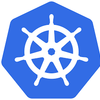In most organizations In any typical company, the development team develops products, while the operations team maintains and manages the products. But it is the DevOps idea is a partnership between development and operations teams that allows continuous delivery of software and services to the end-users.
That means that once you know that development team is ready to release the product, it is moved through the administration and maintenance phase immediately and is then released to users with the least amount of delay.
Based on Information Week, DevOps will be in high demand in the coming years with no sign slowing down. The DevOps market is expected to be valued at USD 14.9 billion in 2026. which is a positive sign of demand that will continue to be high. The increase in demand has prompted companies across the globe to search for experts who have DevOps Certification to the hope of integrating seamlessly to DevOps practices as quickly as they are able.
Before we look into ways to become the DevOps engineer, we must to ask: "What is a DevOps engineer?"
What is an DevOps Engineer?
The DevOps engineer can be described as an IT professional with an knowledge of software development process. They must understand the reason why the company had to switch between one and the next as well as the weaknesses of the prior model, the advantages from the brand new one and so on.
An DevOps engineer must also know how to utilize different automation tools to create Continuous Integration and Continuous Deployment (CI/CD) pipelines. This job needs a particular combination of DevOps abilities that we'll investigate more deeply when we get to it.
There are several stages within the process of CI/CD. The first is planning that involves writing the algorithm to your solution. The next step is the building phase in which the algorithm is turned into a product that is able to be utilized.
It is tested during the testing phase, where bugs are identified and rectified. The product is then moved to the deployment phase, which is when it's presented to users. After the product has been deployed it must be continuously monitored. This is a concept that has only recently been added to the DevOps lifecycle.
DevOps engineers concentrate more on the monitoring stage as compared to previous stages. It is essential to keep an eye on the software on a regular basis to detect new bugs, address them, then release the correct Version back out to the customer. This helps ensure that the client is satisfied once the product is released into the world. DevOps engineers work in conjunction with development and operations teams to produce quality products as quickly as time feasible.
A DevOps engineer could also choose to go into other careers like:
- DevOps architect
- Automation engineer
- Tester of software
- Specialist in integration
- Security engineer
- Release manager
How can I become an DevOps Engineer?
Look at the below infographic for more information on how to become an DevOps engineer
Let's dive deep into a deeper explanation and gain a better knowledge of what it takes to become an DevOps engineer. First, let's know what we know about what it takes to become the DevOps engineer.
DevOps Engineering Roles, Responsibilities and Responsibilities
A DevOps engineer is a member of both the development and operations teams to design and deploy software systems. They must work in a team with quality assurance specialists and other IT personnel. DevOps engineers are responsible for: DevOps engineer's principal tasks and responsibilities include:
- Write documentation to support server-side functions.
- Create, install tests, configure as well as maintain IT solutions.
- Share the operational requirements and development forecasts with all members of the team.
- Create plans and procedures to enhance and extend the technologies currently in use.
- Automatically deploy updates to the production environment by using the software for configuration management.
- Perform routine maintenance on the application and troubleshooting measures to ensure that the production environment is running smoothly.
- Perform gap analysis in order to determine improvements in performance, find other solutions and assist in making changes.






Top comments (0)